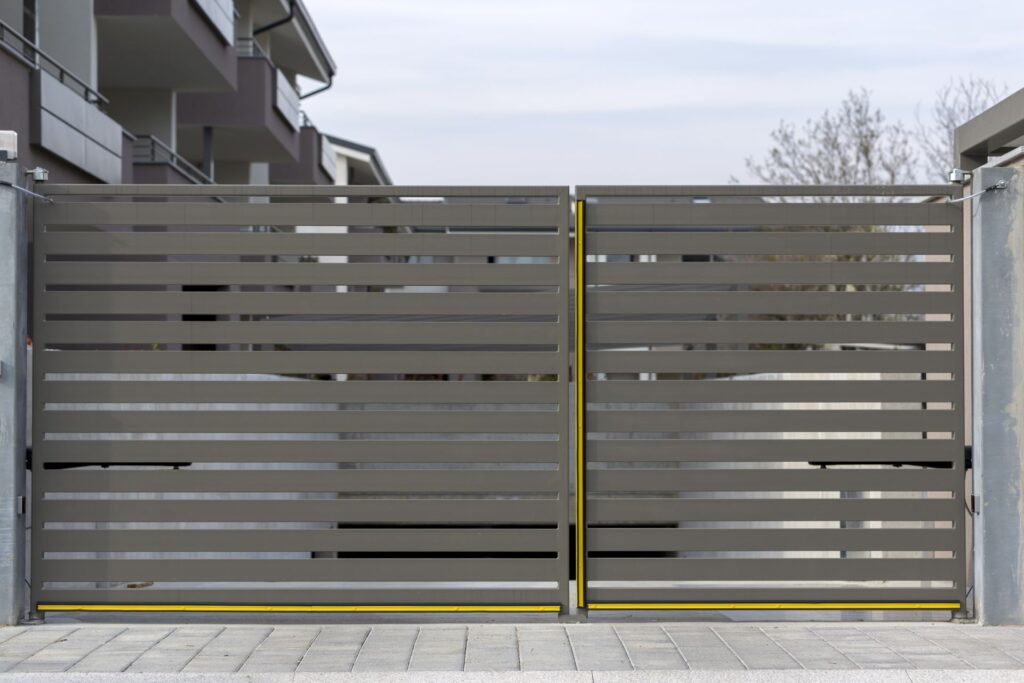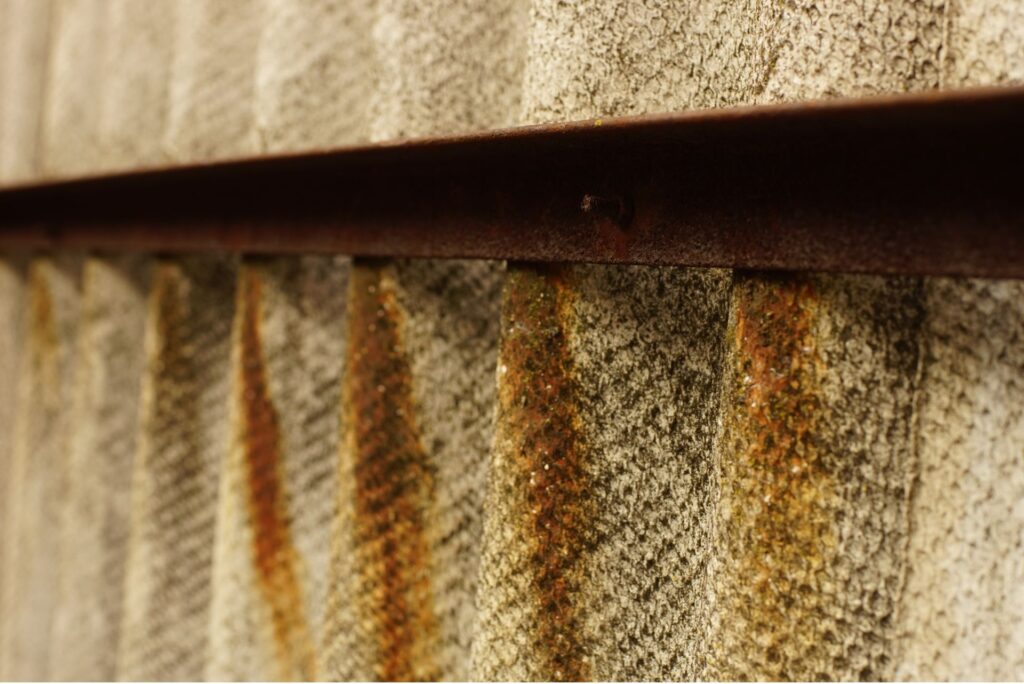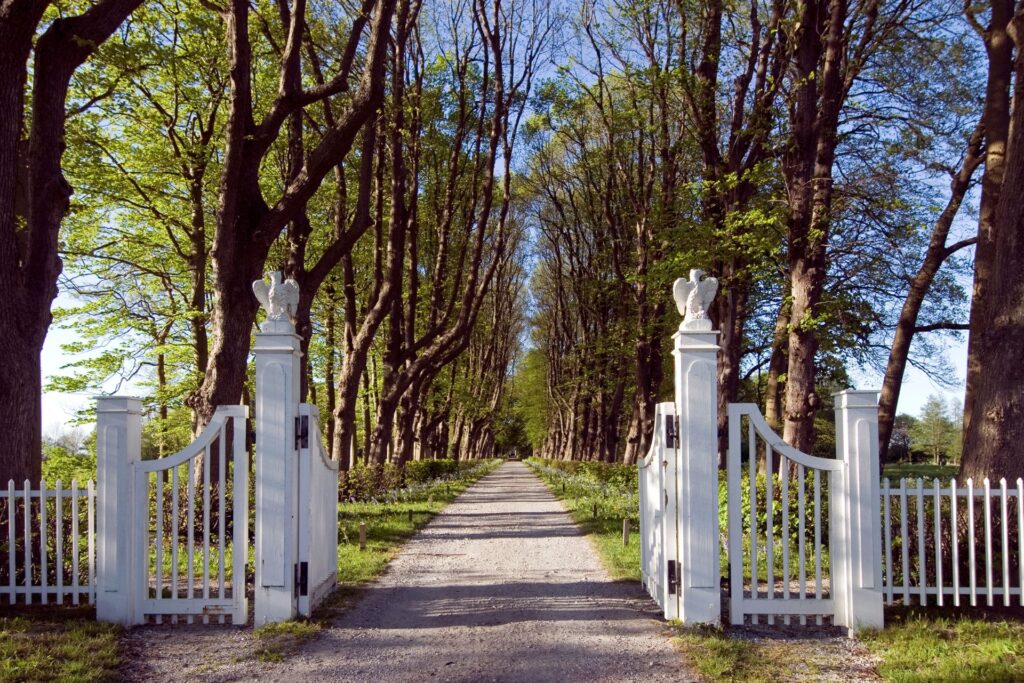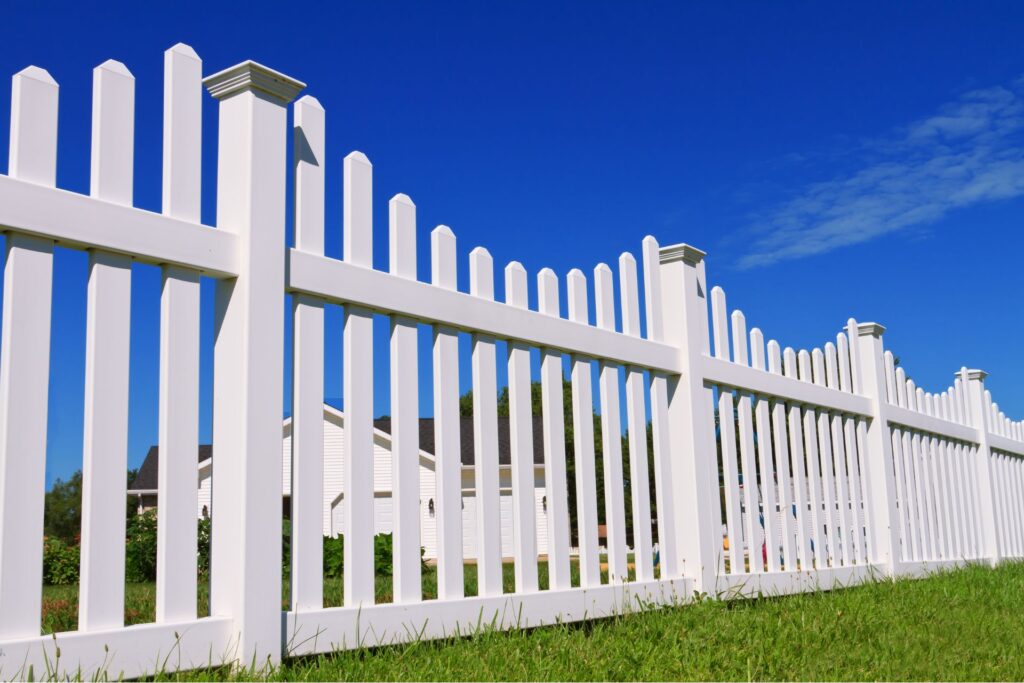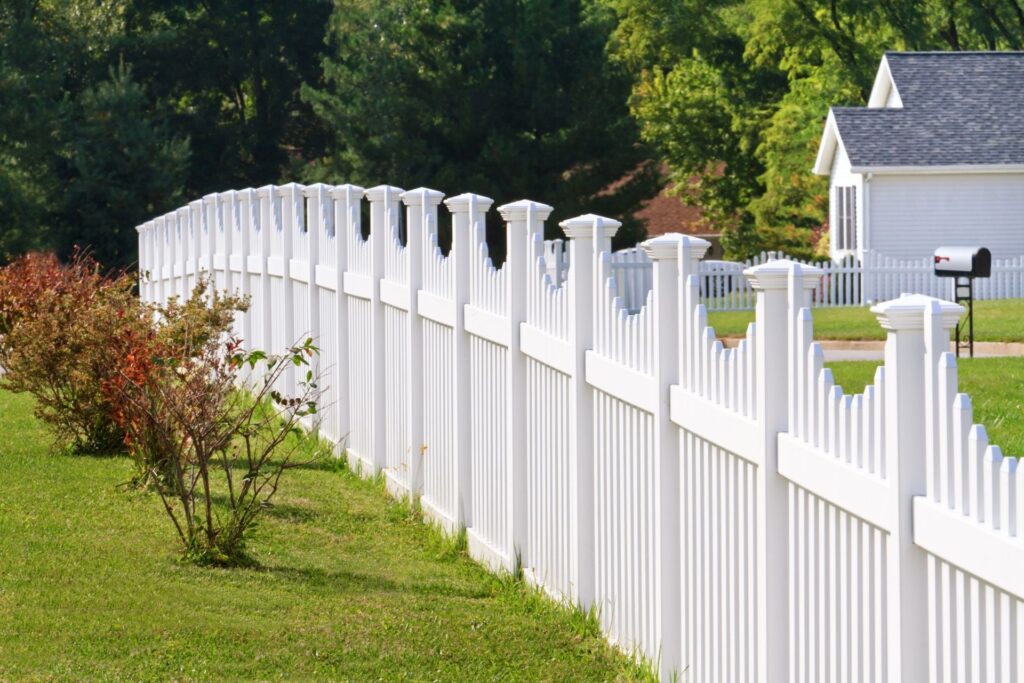Welcome to the ultimate guide on determining whether wooden or metal gates are cheaper for your home or property. If you’re facing the dilemma of choosing between these two popular gate materials, you’re not alone. Each option comes with its own set of pros and cons, and cost is a major factor to consider when making your decision. In this article, we’ll break down everything from the initial price tag to long-term maintenance costs, helping you make an informed choice that suits both your budget and needs. Let’s dive into the cost comparison of wooden and metal gates to find out which one truly offers better value for your money.
Wooden gates are generally cheaper upfront than metal gates, with prices depending on the type of wood and design. However, metal gates often prove more cost-effective in the long run due to their durability and lower maintenance costs. While wooden gates may require frequent sealing and repairs, metal gates—especially aluminum—require minimal upkeep, making them a better long-term investment for homeowners looking for lasting value.
Table of Contents
Understanding The Basics – What Are Wooden And Metal Gates?
When considering the addition of a gate to your property, it’s crucial to understand the two primary materials available: wood and metal. Each material offers distinct advantages and caters to different aesthetic and functional requirements. Let’s delve into the characteristics of wooden and metal gates and explore key considerations for choosing the right type for your needs.
Wooden Gates Overview
Wooden gates are synonymous with warmth and natural beauty, bringing a traditional charm that is hard to replicate with other materials. Common types of wood used for gates include pine, cedar, and oak, each offering unique qualities:
- Pine is cost-effective and relatively durable if treated properly, making it a popular choice for those on a budget.
- Cedar stands out for its resistance to decay and natural insect-repelling properties, requiring less maintenance while providing a pleasing aesthetic.
- Oak is known for its strength and longevity, with a striking grain that appeals to those seeking a premium rustic look.
The natural aesthetic appeal of wood can enhance the character of a residential home or blend seamlessly into a scenic landscape. However, wooden gates require regular maintenance, including painting or staining, to preserve their appearance and durability.
Metal Gates Overview
For those seeking a more modern look or needing enhanced durability, metal gates are the preferred choice. Common materials used for these gates include steel, aluminum, and wrought iron:
- Steel gates are highly durable and secure, making them ideal for both residential and commercial properties concerned with safety.
- Aluminum offers a lighter alternative to steel, resistant to corrosion, and requiring minimal upkeep, suitable for decorative purposes or areas with harsh weather conditions.
- Wrought iron is prized for its ornamental potential and strength, perfect for creating intricate designs that add a touch of elegance and sophistication.
Metal gates provide a blend of durability and modern appeal, often requiring less frequent maintenance than wooden gates. Their robustness makes them a prime choice for security-focused installations.
Key Considerations
When choosing between a wooden or metal gate, consider the following:
- Purpose of the Gate: Determine whether the gate is for residential, commercial, decorative, or security purposes. Residential gates often prioritize aesthetic appeal and harmony with the home’s exterior, while commercial gates focus on functionality and security.
- Cost Implications: The choice of material affects both the initial investment and long-term maintenance costs. Wood may require more upkeep over time, which can add to the total cost of ownership, whereas metal, particularly aluminum and wrought iron, often entails higher upfront costs but less frequent maintenance.
Understanding these fundamental differences and considerations will help you make an informed decision about which gate material is best suited for your property, enhancing both its functionality and curb appeal. Whether you choose the natural elegance of wood or the sleek durability of metal, each material offers unique benefits that can meet various needs and preferences.

Initial Costs – Wooden Vs Metal Gates
When considering the installation of new gates, whether for a residential property or commercial premises, the choice between wooden and metal gates is pivotal. This decision not only affects the aesthetic appeal and security of your property but also has significant financial implications. Let’s delve into the initial costs associated with both wooden and metal gates, helping you make an informed decision tailored to your needs and budget.
Wooden Gates: Initial Investment
Wooden gates are a popular choice due to their natural aesthetic, versatility, and the warmth they bring to a property’s appearance. The cost of wooden gates can vary widely based on several factors:
- Type of Wood: The choice of wood affects both the price and the durability of the gate. Common options include cedar, pine, redwood, and teak. Hardwoods like teak or mahogany are more expensive but offer greater durability and resistance to the elements.
- Size and Style: The larger and more intricate the gate design, the higher the cost. Simple flat-panel gates are more affordable than ornate, custom-designed versions.
- Additional Costs: When budgeting for a wooden gate, consider not only the base price of the gate itself but also additional expenses such as:
- Customization: Costs increase if you opt for custom designs or sizes.
- Installation: Professional installation is recommended to ensure that the gate functions correctly and lasts its intended lifespan.
- Hardware: Items like hinges, locks, and decorative elements can also add to the overall cost.
Wooden gates require regular maintenance, including painting or staining, to maintain their appearance and longevity, which should be considered as part of the ongoing costs.
Metal Gates: Initial Investment
Metal gates offer enhanced durability and security and are available in a range of styles and materials. The initial investment in a metal gate will vary based on several factors:
- Metal Type: The most common metals used in gates are steel and wrought iron. Steel gates are generally more cost-effective than wrought iron gates, which are prized for their ornamental capabilities but tend to be more expensive.
- Finishing Touches: Metal gates often require additional treatments to prevent rust and enhance aesthetic appeal:
- Powder Coating: This is a popular choice for adding color and texture, protecting the metal from environmental damage.
- Galvanizing: Especially important for iron gates, galvanizing coats the metal in a protective layer of zinc to prevent rust.
- Intricate Designs: Custom designs and more intricate patterns can increase the price significantly due to the additional labor and materials required.
Metal gates generally require less maintenance than wooden gates, although periodic inspections and touch-ups to the finish may be necessary to prevent rust and wear.
Whether you choose a wooden or metal gate, consider not only the initial investment but also the long-term maintenance and durability. Each material offers unique benefits and challenges, so weigh these factors carefully to choose the best gate type for your property.

Maintenance Costs Over Time
When choosing between wooden and metal gates, understanding the long-term maintenance costs is crucial for homeowners who are budget-conscious and wish to maintain their property’s aesthetic appeal and functionality. Here, we’ll break down what you can expect in terms of upkeep for each type of gate, helping you make an informed decision that fits both your budget and lifestyle.
Wooden Gate Maintenance
Wooden gates are popular for their natural look and the warm, inviting presence they add to a property. However, this beauty comes with a need for consistent maintenance to keep them in prime condition.
1. Regular Sealing, Staining, and Repainting: Wood is susceptible to weather elements, including sun, rain, and snow. To prevent weather-related damage such as cracking, fading, and moisture penetration, wooden gates require regular sealing, staining, or repainting. This not only preserves their look but also extends their lifespan. Depending on your local climate and the quality of the products used, this could be a yearly or biennial task.
2. Cost of Repairs: Wood gates are prone to specific issues like rot, warping, and pest damage (especially termites and carpenter ants). The costs for repairs can vary significantly based on the extent of damage and the rates of local carpentry services. Early detection and regular maintenance can reduce these costs but won’t eliminate them.
Metal Gate Maintenance
Metal gates, on the other hand, offer different challenges and benefits. They can be crafted from various metals, each with its maintenance profile.
1. Rust Prevention for Iron/Steel Gates: Iron and steel gates are strong and durable but require regular maintenance to prevent rust. This typically involves applying a rust-inhibiting primer and paint as part of a regular maintenance routine. In areas with high humidity or saline environments (near the ocean), this may need to be done more frequently.
2. Minimal Maintenance for Aluminum Gates: Aluminum gates are a fantastic option for those looking for durability without the hassle of frequent upkeep. Aluminum does not rust, and its maintenance is generally limited to occasional cleaning to remove dirt and debris and inspection to ensure all hardware and moving parts are functioning properly.
Long-Term Cost Breakdown
Over the years, the cost of maintaining a gate can significantly impact its overall affordability. While wooden gates may require more frequent and costly maintenance due to their susceptibility to environmental factors, metal gates, especially aluminum, often present lower long-term maintenance costs. However, initial costs for metal gates can be higher, which is an important consideration when evaluating the total cost of ownership.
In conclusion, when choosing between wooden and metal gates, consider not only the initial purchase and installation costs but also the long-term maintenance expenses. Each option offers its own set of advantages and drawbacks, and your choice will depend on your specific needs, preferences, and willingness to invest time and money into upkeep. Regular maintenance remains key to ensuring that whichever gate you choose, it remains functional and visually appealing for years to come.

Durability And Longevity – Which Lasts Longer?
When choosing the right gate for your home or property, understanding the durability and longevity of different materials is crucial. Gates not only enhance the aesthetic appeal of a property but also ensure security. The choice between wooden and metal gates often boils down to several factors, including maintenance, exposure to elements, cost implications, and of course, how long they last. In this section, we will explore the durability of wooden and metal gates and understand which material offers the best long-term value.
Wooden Gate Durability
Wooden gates have been a popular choice for years, offering a classic and warm aesthetic that many homeowners love. The longevity of wooden gates, however, is heavily dependent on regular maintenance. With proper care, a wooden gate can last for decades. Here are some key points to consider:
- Lifespan: Typically, a well-maintained wooden gate can last anywhere from 15 to 20 years. The lifespan can extend beyond this with diligent maintenance and timely repairs.
- Maintenance Needs: Regular staining or painting is required to protect the wood from the elements. Additionally, sealing the wood helps to prevent moisture absorption, which is crucial for avoiding rot.
- Vulnerabilities: Wooden gates are particularly susceptible to damage from moisture, temperature fluctuations, and pests like termites. These factors can significantly reduce the gate’s longevity if not addressed properly.
Metal Gate Durability
Metal gates, including those made from steel, aluminum, and wrought iron, offer a different set of advantages and challenges when it comes to durability:
- Steel and Wrought Iron Gates: Known for their strength and security, these materials are highly durable. However, they are prone to corrosion and rust if not properly treated or if the protective coatings are compromised.
- Aluminum Gates: Aluminum is a lighter metal that is naturally resistant to corrosion, making it a low-maintenance option compared to steel and wrought iron. It’s an ideal choice for areas with high moisture and salt exposure.
- Maintenance Tips: Regular inspections for signs of rust and corrosion, especially in steel and wrought iron gates, are necessary. Protective coatings and rust-proof paint can extend the life of these gates.
Cost Implications of Durability
The durability of a gate directly impacts its cost-effectiveness. Here’s how:
- Initial Investment vs. Long-Term Value: A cheaper gate might save money upfront but could require more frequent replacements or repairs. Conversely, investing in a more expensive, durable gate can be more cost-effective over time due to lower maintenance and replacement costs.
- Maintenance Costs: Wooden gates might need more frequent treatment for pests and weather resistance, which can add to the total cost of ownership. Metal gates, while generally requiring less frequent maintenance, might involve higher costs when they do need care, especially if rust or corrosion sets in.
Choosing the right material for your gate involves weighing these factors based on your specific needs and environmental conditions. Both wooden and metal gates have their merits, but the best choice will depend on your priorities like aesthetics, security, budget, and willingness to maintain the gate over its lifetime. By considering both the upfront costs and the long-term maintenance, you can make a more informed decision that ensures your gate not only looks good but also stands the test of time.
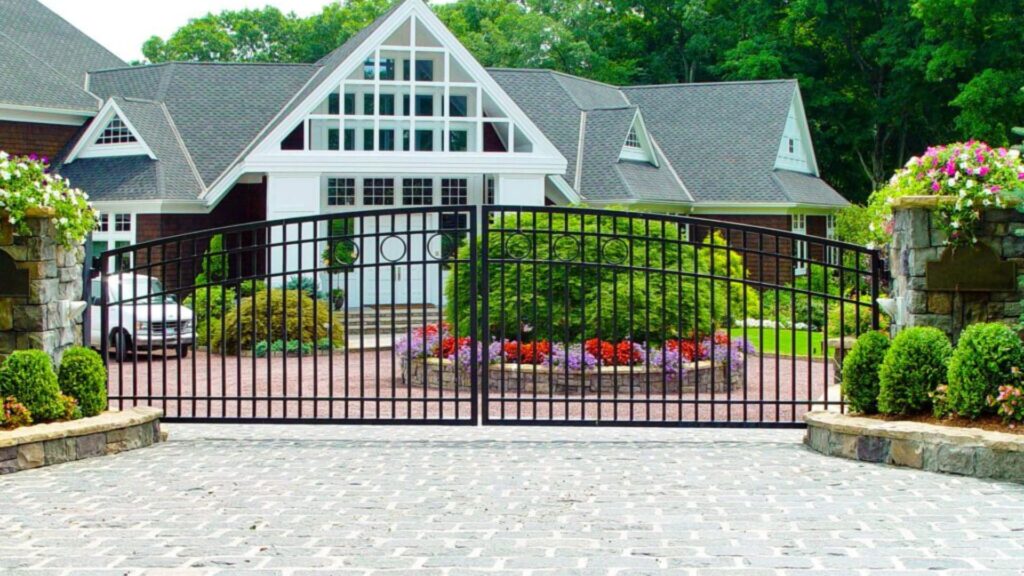
Installation Costs
When considering adding a gate to your property, the material you choose not only affects the look and durability of your gate but also the installation process and costs. Let’s dive into a detailed exploration of the installation costs associated with both wooden and metal gates, helping you make an informed decision based on design, functionality, and budget.
Wooden Gate Installation
Design and Size Considerations
Wooden gates come in a variety of designs and sizes, from simple picket styles to ornate custom creations. The complexity of the design and the size of the gate significantly influence the installation time and labor costs. A larger, more intricate gate requires more materials and prolonged labor, which can increase your cost.
Support and Hardware Costs
Installing a wooden gate also involves expenses beyond the gate itself, including the supports and hinges necessary to ensure its functionality and longevity. Proper gate supports are crucial, as they bear the weight of the gate, preventing sagging and ensuring smooth operation. Hinges, too, must be robust and appropriately sized for the gate’s weight and usage frequency. Selecting high-quality supports and hinges can prevent future maintenance costs, but they do require an initial investment that should be factored into the overall installation cost.
Metal Gate Installation
Weight and Support Requirements
Metal gates are generally heavier than wooden ones, necessitating additional structural support. In many cases, the installation of metal gates involves laying concrete footings, which provide a stable base and anchor the gate securely. This requirement adds a layer of complexity and cost to the installation process, from mixing and pouring concrete to curing and inspection.
Durability and Maintenance Costs
While the initial installation of a metal gate can be higher due to these factors, it’s important to consider the longevity and maintenance costs associated with metal versus wood. Metal gates typically require less maintenance over time, as they are more resistant to weathering and pests. This can offset the higher upfront cost by reducing the need for repairs and replacements.
Installation Cost Comparison
When comparing the costs of installing wooden versus metal gates, consider both the immediate and long-term financial implications. Wooden gates might have a lower initial installation cost, especially for simpler designs without extensive supports. However, their maintenance over time can add up, particularly in harsh weather conditions or if the wood is not properly treated against pests and rot.
Metal gates, on the other hand, while initially more expensive to install due to the need for concrete footings and heavier supports, may offer savings in the long run through reduced maintenance needs and greater durability.
Final Thoughts
Choosing between a wooden or a metal gate involves weighing both aesthetic preferences and practical considerations like budget, maintenance, and the gate’s intended purpose. By understanding the associated costs and requirements for each type of gate, homeowners can make a decision that aligns with their long-term property goals and financial plans.
Whether you opt for the natural charm of a wooden gate or the robust security of a metal one, ensuring a professional installation will maximize the gate’s functionality, security, and aesthetic appeal, enhancing the value and enjoyment of your property.

Environmental And Aesthetic Considerations
When selecting gates for a property, whether residential or commercial, it’s crucial to consider both environmental sustainability and aesthetic appeal. These factors not only enhance the property’s immediate curb appeal but also contribute to its long-term value and alignment with sustainable practices. Let’s delve deeper into the considerations surrounding the choice of wooden and metal gates and how aesthetics influence a property’s market standing.
Wooden Gates and Sustainability
Wooden gates are favored for their natural beauty and the warmth they lend to any entrance. But beyond their aesthetic appeal, choosing wood as a material can have significant environmental implications:
- Eco-friendly Options: Opting for wooden gates made from sustainably sourced wood is a responsible choice. These woods are harvested from forests managed in a way that prevents environmental degradation and promotes regeneration. This practice helps maintain the ecological balance and supports the sustainability of the woodworking industry. Certifications like FSC (Forest Stewardship Council) or PEFC (Programme for the Endorsement of Forest Certification) can guide consumers in identifying wood sourced in an environmentally friendly manner.
- Natural Integration: Wood naturally integrates with outdoor environments, enhancing a property’s aesthetic coherence with its surroundings. The organic texture and color variations of wood can boost the property’s curb appeal, making it appear more inviting and in harmony with nature. This connection to the natural world can be a significant selling point for future buyers who value environmental aesthetics and sustainable materials.
Metal Gates and Sustainability
Metal gates offer a blend of durability and versatility, with options ranging from sleek, modern designs to the traditional charm of wrought iron:
- Recycling and Longevity: Metal gates are highly sustainable due to their durability and the recyclability of materials like aluminum and steel. Metal often requires less frequent replacement than other materials, reducing waste and the demand for raw materials. Additionally, the possibility of recycling old metal gates minimizes their environmental impact, as they can be melted down and repurposed at the end of their lifecycle.
- Design Versatility: Metal gates can be crafted into a wide range of designs, from sharp, clean lines that suit modern architectural styles to ornate wrought iron gates that exude rustic charm. This versatility makes metal gates suitable for enhancing the architectural character of any property, thereby improving curb appeal and potentially increasing property value.
How Aesthetics Influence Long-Term Value
The aesthetic choices in gate materials and designs do more than just please the eye; they also play a crucial role in the property’s market value:
- Balancing Style and Resale Value: When homeowners choose gate designs, they often weigh their personal style preferences against potential resale value. Gates that complement the architectural style of the home and appeal to broader aesthetic tastes tend to enhance curb appeal and, by extension, property value. For example, a well-chosen wooden gate that blends with a rustic landscape or a sleek metal gate that enhances a modern home’s façade can make a significant difference in first impressions during a sale.
In conclusion, the choice of gate materials and styles is not just about immediate aesthetics but also about contributing positively to the environment and ensuring the sustainability of resources. By choosing sustainable materials and designs that harmoniously blend with both the property’s architecture and the surrounding landscape, homeowners can significantly enhance both the environmental value and the market appeal of their property. This thoughtful approach to gate selection ensures that beauty and responsibility go hand in hand.

Additional Features And Customization
When it comes to enhancing the aesthetic appeal and functionality of your property, opting for custom gate designs is an excellent choice. Whether you prefer the rustic charm of wooden gates or the sleek durability of metal gates, customization allows you to tailor each piece to your exact specifications and style preferences. In this section, we will explore the various customization features available for both wooden and metal gates and discuss how these customizations impact the cost.
Wooden Gates Customization
Wooden gates offer a warm and inviting look, making them a popular choice for residential properties. The customization of wooden gates involves a range of design options including carvings, panel styles, and finishes:
Types of Custom Designs Available
- Carvings: Wooden gates can be enhanced with custom carvings that reflect personal tastes or cultural symbols. Whether it’s a simple floral pattern or a complex landscape, carvings add a unique touch that sets your property apart.
- Panel Styles: You can choose from various panel styles such as solid panels for privacy, spaced panels for a more open look, or a combination of both for a balanced aesthetic.
- Finishes: The finish on a wooden gate not only adds beauty but also protects the wood from weathering. Options include natural stains, painted finishes, and weather-resistant coatings, each providing a different level of durability and color richness.
How Customization Affects the Cost of Wooden Gates
Customizing wooden gates will typically increase their cost. The extent of the customization, such as the intricacy of carvings and the quality of the finish, directly influences the price. However, investing in a custom-designed gate can enhance the overall value and curb appeal of your property.
Metal Gates Customization
Metal gates are valued for their strength and versatility. They can be crafted into intricate designs and are available with various functional enhancements such as automation:
- Intricate Metal Designs: Metal gates can be fabricated with detailed patterns and shapes that are not possible with wooden gates. From classic wrought iron to modern geometric patterns, metal gates can be tailored to reflect any architectural style.
- Powder Coating for Color Variety: Unlike paint, powder coating adds a layer of durable color to metal gates that is resistant to chipping, fading, and rust. This process allows for a wide range of color choices, enabling you to match or contrast with your home’s exterior.
- Options for Motorized or Automated Gates: Metal gates often come with the option to add motorization or automation. This feature offers convenience and security, allowing the gates to be opened or closed with the push of a button from your vehicle or home.
Cost Impact of Customization
Determining whether wood or metal is cheaper to customize depends largely on the specific customizations you choose. Here are some considerations:
- Cost Comparison: Generally, basic metal gate customizations, like powder coating, are less expensive than intricate wooden carvings. However, when it comes to more advanced features like automation, the costs can quickly add up, potentially making metal gates more expensive overall.
- Range of Available Options: Metal gates typically offer a broader range of customization options, especially in terms of design complexity and automation features. Wooden gates, while customizable in style and finish, have limitations regarding functional enhancements.
In conclusion, the choice between wooden and metal gates for customization depends on your specific needs, budget, and style preferences. By understanding the customization options and their associated costs, you can make an informed decision that enhances the beauty and functionality of your property while also considering financial implications.
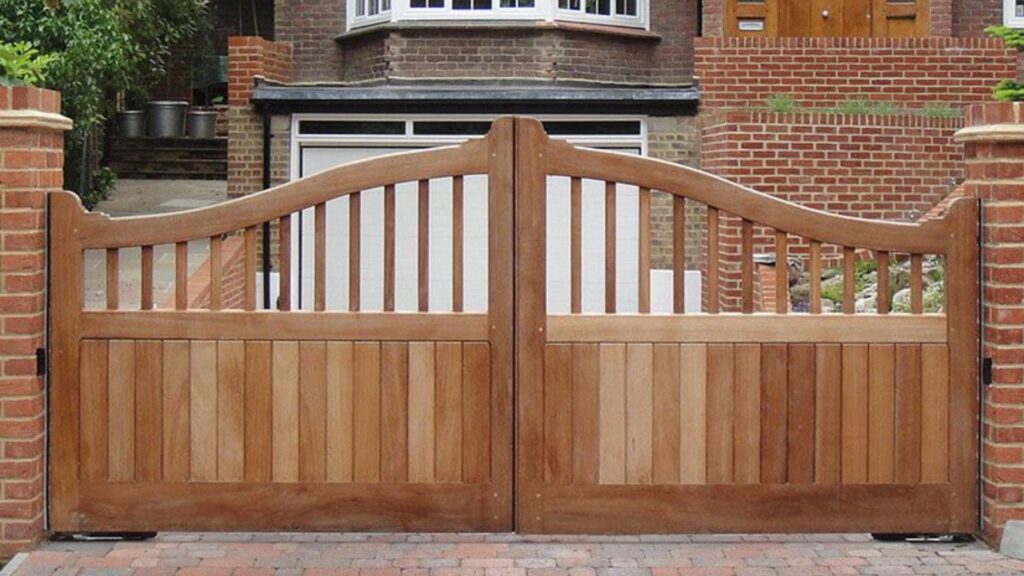
Making The Right Choice – Budget And Long-Term Considerations
Deciding on the type of gate for your property—be it wooden or metal—requires more than just matching it to your aesthetic preference; it involves weighing both initial costs and long-term financial implications. Here’s a closer look at when each type of gate might be the right choice and how to think about your budget in the long run.
When to Choose Wooden Gates
Wooden gates are a popular choice for those who value a natural look and feel for their property’s exterior. This type of gate effortlessly complements a variety of architectural styles, from rustic country homes to contemporary residences. The organic texture and the ability to paint or stain the wood in any color offers a versatile solution to those looking to enhance their home’s curb appeal.
In terms of cost, wooden gates generally come with a lower initial price tag compared to their metal counterparts. This makes them an attractive option for property owners working within a tighter budget. However, it’s important to keep in mind that wood may require more maintenance over time, including regular treatments to prevent weather damage and decay. Therefore, while the upfront cost is more manageable, there could be additional expenses for upkeep.
When to Choose Metal Gates
Metal gates are the go-to for durability and security. Materials like steel or wrought iron are not only robust but also offer a timeless elegance that can elevate the look of your property. If you live in an area with harsh weather conditions or you prioritize security, metal gates provide an excellent barrier that withstands environmental stressors and potential security breaches.
Although metal gates might come with a higher initial cost, they are often more economical in the long run. Their durability means less frequent replacements and repairs. Additionally, metal gates require minimal maintenance, perhaps just the occasional repaint or rust treatment, depending on the climate. For those who can afford a higher upfront investment, metal gates offer peace of mind and reduced long-term expenses.
Budgeting for the Future
When selecting a gate, it’s crucial to look beyond the immediate cost. Consider the total cost of ownership which includes maintenance, potential repairs, and the likelihood of needing a replacement in the future. Wooden gates, while initially cheaper, might lead to higher ongoing costs. Metal gates, on the other hand, could provide savings over time due to their longevity and low maintenance needs.
Understanding these factors helps in making a financially savvy decision that aligns with both your aesthetic desires and budgetary constraints. Remember, a gate is not just a purchase; it’s an investment in your property. Therefore, consider all aspects to ensure that your choice not only meets your current needs but also aligns with your long-term financial goals. This strategic approach to selecting gates will ensure that you enjoy both functionality and form, without compromising on quality or financial wisdom.

Final Verdict – Are Wooden Or Metal Gates Cheaper?
When choosing between wooden and metal gates, homeowners must consider several factors, including initial costs, maintenance expenses, and long-term durability. This final verdict aims to break down these elements to determine which type of gate may be more cost-effective for your specific needs.
Initial Costs
Wooden gates generally boast a lower upfront cost compared to metal gates. The materials needed for a wooden gate are typically less expensive, and the installation process can often be simpler, depending on the design and security features desired. However, metal gates, made from materials like steel or aluminum, are usually more costly initially due to their higher material costs and the specialized labor required for installation.
Maintenance Costs
The long-term upkeep of your gate is a critical factor in evaluating its overall cost-effectiveness. Wooden gates require regular maintenance, including painting or staining and protection against pests and rot. These maintenance activities can add to the total cost of ownership over the years. On the other hand, metal gates often require less frequent maintenance. They are generally more resistant to environmental damage but may need periodic treatments to prevent rust, especially in areas with harsh weather conditions.
Long-Term Durability and Costs
When considering long-term durability, metal gates typically offer greater longevity. They are robust, can withstand harsh weather conditions better than wood, and are less prone to damage from physical impact or environmental factors. This resilience translates to potentially lower replacement costs and less frequent need for repairs, making metal gates a more cost-effective option over many years.
Personal Needs and Preferences
The choice between wooden and metal gates isn’t solely about the numbers; it also hinges on personal preferences and specific requirements. For example, if you live in a humid or coastal area, a metal gate might be more practical to avoid the rapid deterioration associated with wooden gates in such climates. Conversely, if aesthetic appeal and natural look are your priorities, wooden gates would likely be more suitable.
General Advice for Different Homeowner Scenarios
1. Budget-Conscious Homeowners: If upfront cost is your primary concern, wooden gates might be the way to go. However, be prepared for potentially higher maintenance costs.
2. Long-Term Planners: For those looking at the long-term implications, investing in a metal gate could be more economical due to its durability and lower maintenance needs.
3. Aesthetic-Focused Choices: If your gate needs to complement a certain architectural style or natural landscape, wooden gates offer warmth and classic beauty that is hard to replicate with metal.
Deciding whether a wooden or metal gate is more economical depends on balancing initial costs, maintenance expenses, and long-term durability against your personal needs and circumstances. Consider all these factors carefully to choose a gate that not only fits your budget but also aligns with your long-term goals and aesthetic preferences.

FAQs: About Are Wooden Or Metal Gates Cheaper
Which is cheaper: wooden or metal gates?
Wooden gates tend to have a lower upfront cost compared to metal gates, especially if you’re using more affordable wood types like pine. However, metal gates, particularly aluminum, can be more cost-effective in the long run due to lower maintenance costs.
What factors affect the cost of wooden gates?
The type of wood, size, design, and installation complexity all impact the price of a wooden gate. Premium wood types like oak or cedar will be more expensive than pine, and custom designs can also add to the overall cost.
What factors affect the cost of metal gates?
The type of metal used (aluminum, steel, wrought iron), gate size, design complexity, and installation requirements affect the cost of metal gates. Wrought iron gates are often the most expensive due to their craftsmanship and material.
Which gate lasts longer, wood or metal?
Metal gates, especially those made from steel or aluminum, tend to last longer than wooden gates. Wood is susceptible to weather damage, pests, and rot, while metal gates can last for decades with proper care, especially if they are rust-resistant.
Do wooden gates require more maintenance than metal gates?
Yes, wooden gates typically require more maintenance, including sealing, staining, or repainting every few years to protect against weather damage. Metal gates, especially aluminum, require minimal maintenance beyond occasional cleaning and inspection for rust.
How much does it cost to install a wooden gate?
The installation cost for a wooden gate depends on the size, design, and whether any additional supports or custom features are needed. On average, installation costs can range from $150 to $500 or more for larger, customized gates.
How much does it cost to install a metal gate?
Metal gate installation can be more expensive than wooden gates due to their weight and the need for reinforced supports. The cost generally ranges from $300 to $1,000, depending on the type of metal and the complexity of the installation.
Are metal gates better for security?
Yes, metal gates are generally better for security. They are more durable and harder to break than wooden gates, making them a preferred choice for properties where security is a high priority. Wrought iron gates, in particular, offer excellent security.
Can I customize wooden gates more easily than metal gates?
Both wooden and metal gates offer customization options, but wood tends to be easier to work with for intricate designs and finishes. However, metal gates can be customized with various designs, coatings, and colors, offering modern or classic looks depending on the type of metal used.
Which is more environmentally friendly: wooden or metal gates?
Wooden gates made from sustainably sourced wood are generally considered more eco-friendly, especially if the wood is from renewable sources. However, metal gates can be environmentally friendly if made from recycled materials, and their longevity means they won’t need to be replaced as often, reducing waste over time.
Conclusion
When deciding between wooden and metal gates, it’s crucial to weigh all the elements that contribute to a smart choice: initial cost, ongoing maintenance, durability, and aesthetics. Each factor plays a significant role in not only the functionality and longevity of your gate but also how it enhances your property’s curb appeal. If you’re unsure which option best suits your needs or budget, consider reaching out to a gate professional who can provide personalized advice and help estimate costs tailored to your situation. For further insights and to ensure your gate remains in prime condition, explore additional resources such as gate maintenance tips and guides on the best materials for different climates. Engaging with these resources can equip you with the knowledge to make an informed decision that aligns with both your practical needs and aesthetic preferences.
About the Author:
Mike Veail is a recognized digital marketing expert with over 6 years of experience in helping tradespeople and small businesses thrive online. A former quantity surveyor, Mike combines deep industry knowledge with hands-on expertise in SEO and Google Ads. His marketing strategies are tailored to the specific needs of the trades sector, helping businesses increase visibility and generate more leads through proven, ethical methods.
Mike has successfully partnered with numerous companies, establishing a track record of delivering measurable results. His work has been featured across various platforms that showcase his expertise in lead generation and online marketing for the trades sector.
Learn more about Mike's experience and services at https://theleadguy.online or follow him on social media:

